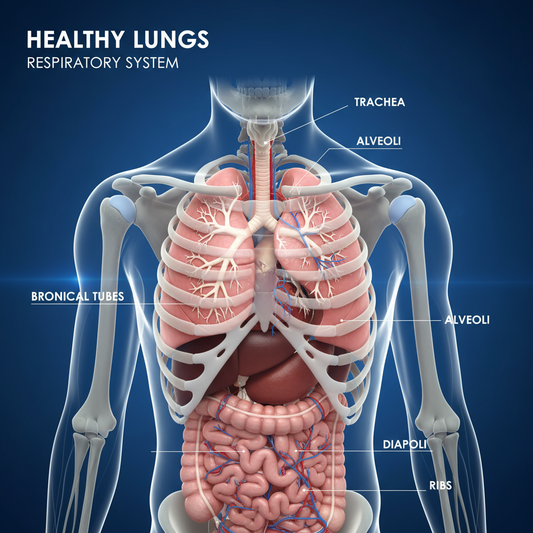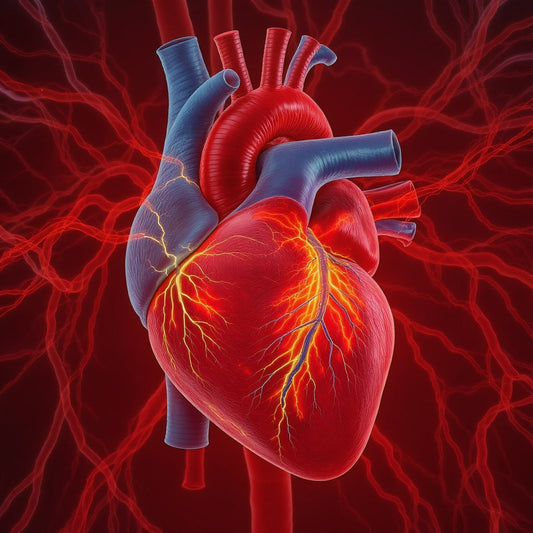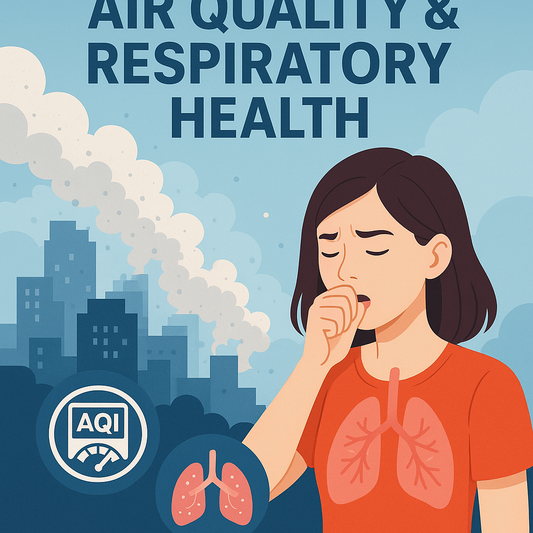Lung Health: Your Local Guide from Naperville Pharmacy

- Key benefits of caring for your lungs
- Breathe easier day‑to‑day: Less shortness of breath during work, exercise, and sleep.
- Fewer flare‑ups and infections: Good control and vaccination can reduce bronchitis, pneumonia, asthma/COPD exacerbations.
- Faster recovery when you’re sick: Early care, correct inhaler use, and rest support healing.
- More energy and better sleep: Healthy breathing supports heart health, stamina, and quality rest.
- Confidence with medicines and devices: Proper inhaler/spacer/nebulizer technique makes each dose work as intended.
- Common lung-related symptoms to watch
- Cough (dry or with mucus), especially if it lasts more than 3 weeks
- Shortness of breath, wheezing, or chest tightness
- Chest discomfort when taking a deep breath
- Fever, chills, fatigue, or body aches with a respiratory infection
- Thick, yellow/green, or bloody mucus
- Hoarseness or voice changes, recurrent chest infections
- Nighttime snoring or pauses in breathing (possible sleep apnea)
- Blue or gray lips/face, confusion, or severe fatigue are urgent warning signs
These can be caused by common conditions like asthma, COPD, acute bronchitis (“chest cold”), influenza, pneumonia, COVID‑19, RSV, allergies/post‑nasal drip, and, less commonly, blood clots or lung cancer. A clinician can help diagnose the cause.
- If you feel chest or lung pain
- Stop and assess: If pain is severe, crushing, or accompanied by shortness of breath, dizziness, sweating, nausea, or a feeling of doom—call emergency services immediately.
- Pain with breathing or deep breaths: Could be infection or inflammation—seek prompt medical evaluation, especially with fever or cough.
- Coughing up blood, bluish lips/face, new confusion, or fainting: Treat as an emergency.
- Known asthma/COPD with chest tightness: Use your prescribed rescue inhaler as directed. If symptoms do not improve quickly or you need it more often than usual, seek urgent care.
- If you use a pulse oximeter and get low readings or see a concerning trend, seek care. Note: Pulse oximeters have accuracy limitations—especially across skin tones—so use symptoms plus readings to decide on care.
- How Naperville Pharmacy can help you
- Inhaler and device coaching: Bring your inhalers/spacer/nebulizer—our pharmacists will check your technique in minutes so more medicine reaches your lungs.
- Personalized OTC guidance: Safe choices for cough, congestion, sore throat, and allergies that fit your health conditions and prescriptions.
- Vaccinations that protect lungs: Flu, COVID‑19, pneumococcal, and (for eligible adults) RSV. Availability may vary—call Naperville Pharmacy to confirm.
- Smoking and vaping cessation support: Nicotine patches, gum, lozenges, and a step‑down plan; we can coordinate with your clinician for prescriptions if needed.
- Medication safety review: We check for drug interactions, duplicate therapies, and side effects that can affect breathing.
- Home monitoring tips: How to use peak flow meters, spacers, and pulse oximeters correctly, and what trends to watch.
- Fast referrals: If your symptoms suggest something more serious, we’ll help you connect with a local clinician or urgent care.
Trusted sources (verify this article)
- CDC — Asthma: https://www.cdc.gov/asthma/
- CDC — COPD: https://www.cdc.gov/copd/
- CDC — Pneumonia: https://www.cdc.gov/pneumonia/
- CDC — Influenza: https://www.cdc.gov/flu/
- CDC — COVID‑19: https://www.cdc.gov/coronavirus/2019-ncov/
- CDC — RSV in adults: https://www.cdc.gov/rsv/
- NIH MedlinePlus — Bronchitis: https://medlineplus.gov/bronchitis.html
- USPSTF — Lung cancer screening: https://www.uspreventiveservicestaskforce.org/uspstf/recommendation/lung-cancer-screening
- FDA — Pulse oximeter accuracy: https://www.fda.gov/medical-devices/safety-communications/pulse-oximeter-accuracy-and-limitations-fda-safety-communication
- American Lung Association — Lung health and diseases: https://www.lung.org/lung-health-diseases
Note from Naperville Pharmacy
This content is educational and not a substitute for medical advice. If you have severe symptoms (trouble breathing, chest pain, bluish lips/face, confusion, coughing up blood), call emergency services right away.



